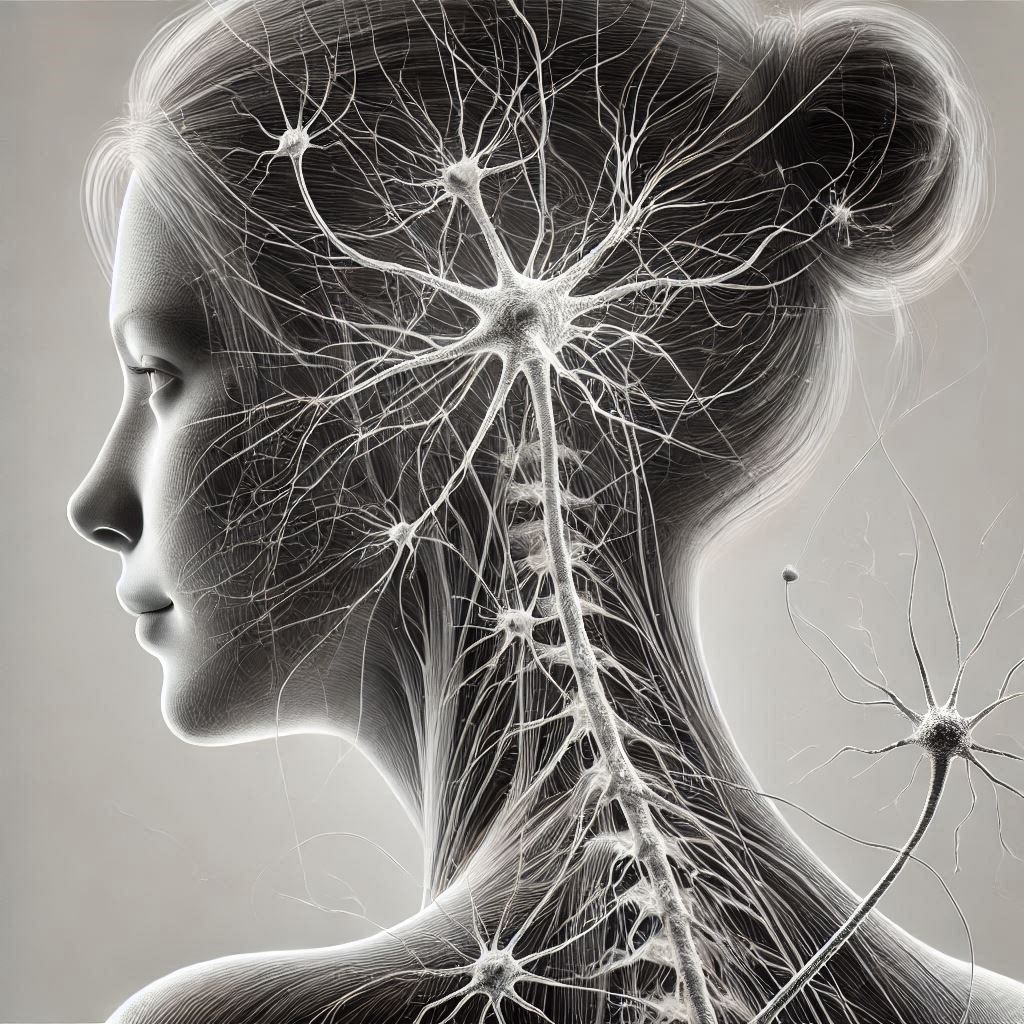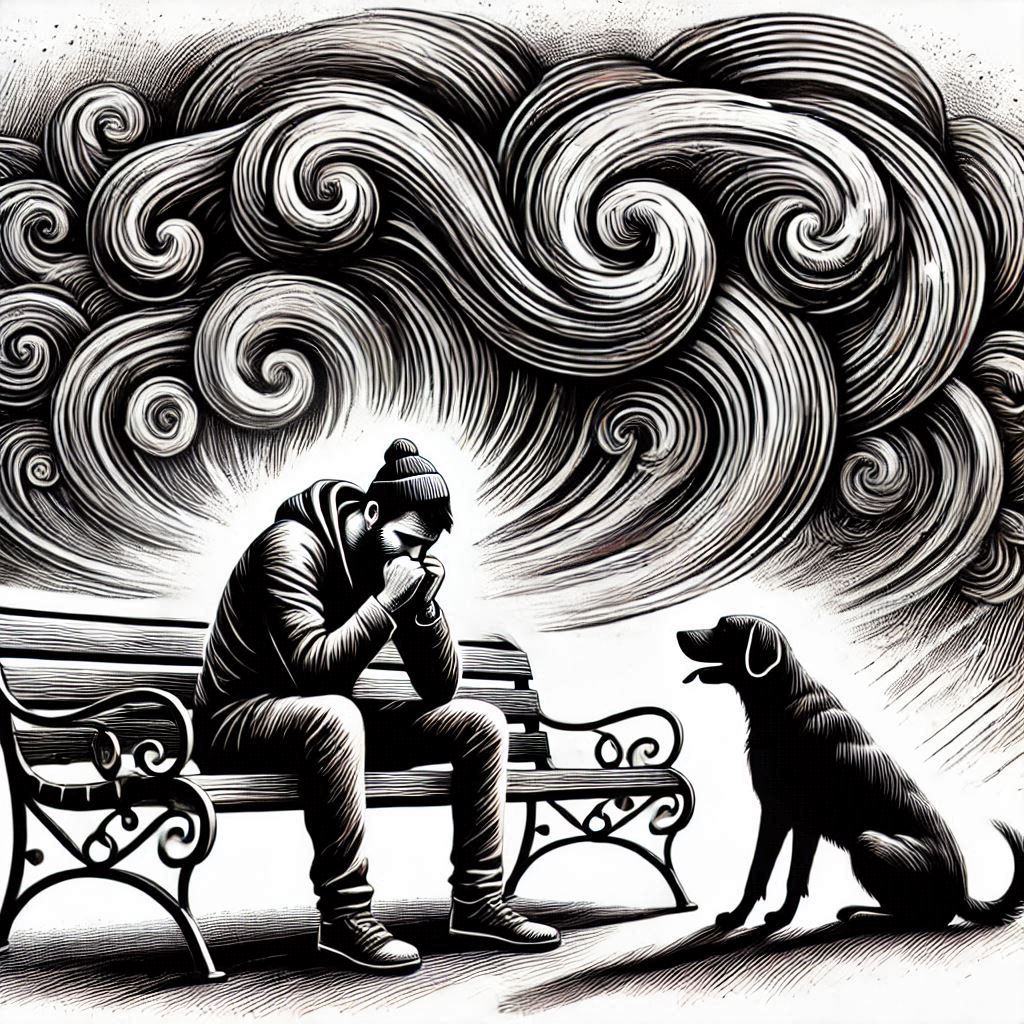Do you ever find yourself unexpectedly engulfed in a wave of panic, with no apparent reason for its sudden arrival? Minor triggers, seemingly insignificant at first glance, can stealthily pave the path towards major panic attacks. These quiet instigators have a remarkable ability to snowball into overwhelming emotional storms, leaving us stranded in a sea of anxiety and fear.
Understanding how these triggers work is crucial. By shedding light on the impact of these subtle catalysts, we can navigate the complexities of mental health with greater understanding and resilience. Exploring the connection between minor triggers and major panic attacks can empower us to manage our mental well-being more effectively, offering insights that resonate on a deeply personal level.
Identifying Minor Triggers
Have you ever felt a sudden rush of anxiety or fear without an obvious cause? Minor triggers, those seemingly harmless events or thoughts, have the power to snowball into major panic attacks, catching us off guard. Identifying these triggers is the first step in understanding how they can lead to overwhelming emotional turmoil.
Examples of Minor Triggers
- Traffic Jams: Ever been stuck in traffic, especially when you’re running late? That frustration and stress can escalate quickly, leading to feelings of panic.
- Unexpected Phone Calls: Getting a call with unexpected news can instantly trigger anxiety. The brain goes into overdrive, wondering what else might happen.
- Crowded Spaces: For some people, crowded places can induce feelings of claustrophobia. The fear of being squeezed in a tight spot can lead to panic.
- Financial Concerns: Minor financial setbacks, like an unexpected bill, can make your heart race. The worry about money can quickly spiral into panic.
These everyday scenarios can be enough to send someone into a tailspin. Understanding that these seemingly minor triggers can have such a big impact helps us realize the unpredictability of mental health challenges.
Subconscious Panic Attack Triggers
Identifying triggers for subconscious panic attacks can be even tougher because they often lie outside our conscious awareness.
These triggers might be linked to past experiences or subtle cues that don’t immediately seem harmful. This hidden nature makes it challenging to address and manage the triggers, leaving many people feeling frustrated and confused about their panic attacks. By understanding this, we can better tackle the underlying issues and find effective coping strategies.
- Past Trauma
Previous traumatic events can linger in the subconscious, triggering panic attacks when similar situations arise. Your brain remembers the trauma, even if you don’t think about it. - Chronic Stress
Long-term stress can build up and cause unexpected panic attacks. Your body and mind can only take so much before reacting. - Certain Smells
Scents tied to past negative experiences can trigger panic attacks. Your sense of smell is deeply connected to memory and emotion. - Loud Noises
Sudden loud sounds can startle your system, leading to a panic response. Sensitivity to noise often ties back to anxiety. - Crowded Spaces
Being in a crowded place can make you feel trapped and anxious, leading to a panic attack. The feeling of not being able to escape feeds the fear. - Social Pressure
High expectations and social scrutiny can trigger intense anxiety. Fear of judgment often leads to panic. - Body Sensations
Physical symptoms like a racing heart or dizziness can cause panic. When you notice these sensations, you might fear the worst, triggering an attack. - Financial Worries
Anxiety about money can cause significant stress. Worrying about bills, debts, or future expenses can lead to a panic attack. - Health Concerns
Constant worry about your health or a loved one’s health can trigger panic. This concern can become overwhelming and all-consuming. - Major Life Changes
Big changes, even positive ones, can be stressful. New jobs, moves, or relationships can cause anxiety and panic attacks. - Phobias
Specific fears, even if not constantly thought about, can trigger panic. Encountering or even thinking about the phobia can set off an attack. - Sleep Deprivation
Lack of sleep can lower your ability to handle stress. This makes you more susceptible to panic attacks. - Caffeine and Stimulants
Consuming too much caffeine or other stimulants can increase anxiety. This can easily trigger a panic attack. - Alcohol and Substance Use
Using alcohol and other substances can destabilize your mood, leading to panic attacks. Withdrawal can also cause similar issues. - Negative Thinking Patterns
Persistent negative thoughts can feed into anxiety. When these thoughts spiral, they can trigger panic attacks. - Attachment Issues
Insecure attachments in relationships can cause anxiety and panic. Fear of abandonment or rejection often underlies this trigger. - Environmental Changes
A sudden change in your environment, like moving to a new city, can cause panic attacks. The uncertainty and newness can feel overwhelming. - Physical Illness
Being sick can make you feel vulnerable, increasing anxiety and the likelihood of panic attacks. Even minor illnesses can sometimes trigger these feelings. - Hyper-awareness
Constantly monitoring your body for signs of illness or panic can actually trigger an attack. This hyper-awareness becomes a self-fulfilling prophecy. - Emotional Suppression
Ignoring or bottling up emotions can lead to panic attacks. Unexpressed feelings build up pressure, eventually bursting out as a panic attack.
Impact of Minor Triggers
Minor triggers can have a profound impact on individuals prone to panic attacks, both psychologically and physiologically.
Psychologically, minor triggers can disrupt emotions, causing feelings of unease, worry, and panic. For instance, a sudden phone call can make someone think of the worst-case scenario, leading to intense anxiety.
Physiologically, the body’s fight-or-flight response kicks in. This can result in increased heart rate, shallow breathing, and sweating. Imagine being stuck in traffic and your heart starts racing, your breathing gets faster, and you can’t stop sweating. These symptoms can make you feel like you’re losing control, further amplifying the panic.
Grasping these impacts is crucial. By recognizing the triggers and understanding how they affect us, we can take proactive steps to manage them better. This might involve strategies like deep breathing, mindfulness, or seeking professional help. Learning to identify and address minor triggers can be a significant step towards maintaining your mental well-being and building resilience against unexpected anxiety storms.
Coping Mechanisms and Support
Navigating minor triggers that can escalate into major panic attacks requires a personalized toolbox of coping mechanisms and a strong support system. Let’s explore effective strategies to manage these triggers and prevent them from spiraling into overwhelming anxiety episodes.
Self-Care Practices
Self-care is foundational when it comes to managing minor triggers and maintaining emotional well-being. Incorporating mindfulness exercises and self-care techniques into your daily routine can help you build resilience against unexpected stressors.
- Mindfulness Meditation: Taking time to pause, breathe, and center yourself can alleviate the immediate impact of a trigger. Mindfulness meditation helps in grounding you in the present moment, easing anxiety and preventing it from escalating.
- Physical Exercise: Engaging in physical activities like yoga, walking, or dancing releases endorphins, the feel-good hormones that combat stress. Regular exercise not only boosts your mood but also strengthens your body’s response to triggers.
- Journaling: Keeping a journal to jot down your thoughts and feelings can provide valuable insights into your triggers. Reflecting on your emotions can help you identify patterns and develop coping strategies tailored to your needs.
- Healthy Lifestyle Choices: Prioritizing a balanced diet, adequate sleep, and reducing caffeine intake can enhance your overall resilience against triggers. A well-nourished body and mind are better equipped to handle stressful situations.
Seeking Professional Help
While self-care practices are essential, seeking professional support is equally crucial, especially if minor triggers frequently lead to major panic attacks. Trained therapists and mental health professionals can offer specialized guidance and interventions to address your specific needs.
- Therapy Sessions: Therapy provides a safe space to explore the root causes of your triggers and develop coping mechanisms. Cognitive-behavioral therapy (CBT) is particularly effective in helping individuals reframe their thoughts and responses to triggers.
- Medication Management: In some cases, medication prescribed by a psychiatrist can help regulate anxiety levels and prevent panic attacks. It’s essential to consult a healthcare provider for proper diagnosis and treatment options.
- Support Groups: Joining support groups or online communities can connect you with individuals facing similar challenges. Sharing experiences and strategies with others can offer a sense of solidarity and reduce feelings of isolation.
By combining self-care practices with professional support, individuals can build a robust defense against minor triggers that threaten to escalate into major panic attacks. Remember, seeking help is a sign of strength, and you deserve to prioritize your mental well-being.
Overcoming Stigma and Misconceptions
In a world where mental health issues often lurk in the shadows of stigma and misconception, shedding light on the realities of panic attacks is crucial. By addressing common misunderstandings and challenging societal biases, we pave the way for a more compassionate and informed understanding of mental health struggles.
Educating Others
Raising awareness about panic attacks isn’t just about dispelling myths—it’s a powerful act of advocacy for mental health destigmatization. When we openly discuss the impact of panic attacks triggered by seemingly minor events, we dismantle the barriers of shame and silence that surround mental health issues.
Think of it like casting a spotlight on the shadows. Suddenly, what once seemed daunting and unknown becomes clearer and more manageable. Educating others about the nuances of panic attacks cultivates empathy and encourages open conversations. This fosters a supportive environment for those grappling with unseen battles.
Learn more about the importance of mental health destigmatization.
Personal Growth and Resilience
Amid the tumult of panic attacks triggered by minor incidents, stories of triumph and resilience serve as beacons of hope. Individuals who have navigated the depths of anxiety and emerged stronger on the other side illuminate the path for others walking a similar journey.
These narratives of personal growth showcase the indomitable spirit of the human psyche. They illustrate that even in the face of overwhelming panic, there lies a reservoir of inner strength waiting to be tapped. Through resilience and perseverance, individuals transform their struggles into stepping stones towards self-discovery and empowerment.
Read inspiring stories of overcoming panic attacks and fostering resilience.
Conclusion
Navigating the minefield of minor triggers that could potentially detonate into major panic attacks requires a delicate balance of self-awareness and proactive strategies.
It’s the small, seemingly insignificant events that can wield immense power over our mental well-being, catching us off guard and plunging us into a whirlpool of anxiety and fear. By honing our ability to identify these triggers and understanding their profound impact, we equip ourselves with the tools needed to weather the emotional storms that threaten to overwhelm us.
Remember, mental health is a nuanced landscape, and each individual’s journey is unique.
Embracing a mindset of empathy and understanding not only towards ourselves but also towards others grappling with similar challenges is paramount. Together, through fostering a community of support and open dialogue, we can dismantle the walls of stigma and misconception that often shroud mental health issues.
Let’s cultivate a culture of compassion and resilience, where stories of triumph and personal growth illuminate the path towards healing and empowerment. Jumpstart your journey towards a more empathetic approach to mental health, and remember, you are never alone in your struggles.








